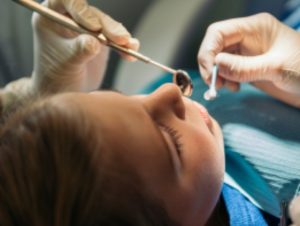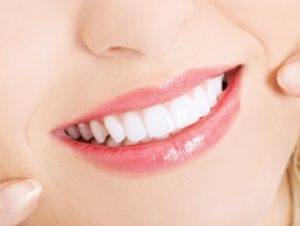It can hardly come as news to many that smoking tobacco is not at all good for your oral and dental health. In fact, smoking and oral health are not at all compatible, with the habit linked to an increased likelihood or oral cancer, among other serious conditions. Other potential problems linked to smoking and oral health include tooth loss, gum disease (also known as periodontal disease), root damage, increased infections and bad breath.
Smoking tobacco also leads to visual problems in the mouth. A whitening of soft tissue in the mouth that is caused directly by tobacco and smoking is colloquially known as smoker’s keratosis. Tobacco and nicotine can also stain the teeth permanently, leading to discoloured enamel and a potential loss of self-confidence. This can be impossible to get rid of, even by an assiduous dental hygienist.
In addition, if you smoke and have dental surgery, your recovery will not be as straightforward as if you do not use cigarettes or tobacco. One known complication for smokers after dental surgery is dry socket, which can be extremely painful. You can also lose the ability to taste delicate flavours, as well as suffer from bad breath, even if you practise decent dental hygiene.
- Bad breath from tobacco use
While bad breath may not be the most clinically serious or pathologically alarming consequence of smoking on oral health, it can be a debilitating and embarrassing side effect. Also called halitosis, bad breath can have a huge effect on people’s confidence, socialising and quality of life. It is often accompanied by a bad taste in the mouth. This impacts on the person’s ability to enjoy food and drink. It is caused by compounds in the tobacco mixing with your saliva, as well as lingering cigarette smoke in your mouth and lungs. The mouth can also become very dry after smoking, which exacerbates the problem further.
- Ways to combat bad breath after smoking
Clearly, the best way to overcome this distressing problem is to quit smoking altogether. This also has other benefits to oral health, including a lower risk of oral cancer, improvements in gum health and enamel condition and being able to taste food and drinks more easily. If you cannot give up smoking entirely, try reducing the number of cigarettes gradually, until you feel able to wean yourself off them altogether. There are also helplines and government resources available online to help you give up.
In the meantime, there are other things you can do to cut down on the chance of developing bad breath from tobacco. Brush your teeth at least twice a day with toothpaste that contains fluoride. Floss in between the teeth, or use interdental brushes. Use an anti-bacteria mouthwash to help clear bacteria and freshen the breath. Drink lots of water and chew sugar-free gum to stimulate saliva and fight plaque. This will help wash bacteria away from the surface of the teeth and keep breath smelling fresher for longer.
Limit your alcohol intake too. Not only will this improve your overall oral health, it will stop you taking unwise decisions while impaired. It can be far harder to say ‘no’ to a cigarette when your judgement is inhibited by the numbing effects of alcohol.
Visit your dentist and dental hygienist regularly for a check-up and deep clean scale and polish. Keeping your teeth in good condition will motivate you to cut back, or give up on cigarettes and so improve your bad breath at the same time. Avoid strong smelling foods too, such as garlic, raw onions, coffee and spices, which can make bad breath from tobacco smell even worse.
If your bad breath continues after taking preventative measures and giving up smoking, there could be another underlying issue present. See your dentist for help and further investigation. Check that you are cleaning your teeth effectively and ask for help and advice if a build-up of plaque is causing bad breath. It could also be worth consulting an ear, nose and throat specialist to see if there are any problems in the surrounding areas that are causing, or making halitosis worse. For example, abnormally large tonsils could be trapping food behind them, leading to increased bacteria and food debris at the back of the mouth.





